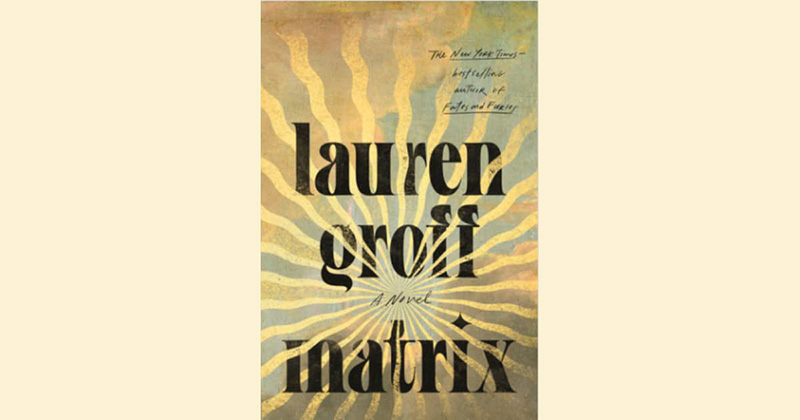Not a lot of people think of the classical Latin roots of the word ‘matrix’ when they hear it. But to understand Lauren Groff’s latest novel, a fictionalised history of the 12th Century poet and mystic Marie de France, you have to remember that matrix can mean ‘mother’ and ‘womb’ – not just ‘network’ as Keanu Reeves might have led us to believe.
This is not to say that Matrix does not deal with networks. The strength of this book is how it redefines assumptions about how and by whom networks are built by presenting two parallel empires centred on mothers: matrixes built by matrixes. The Angevin empire, which rises and falls over the seven decades spanned in the novel, is formed by and around Eleanor of Aquitaine.
Eleanor, wife and mother of kings who themselves are barely mentioned, also happens to be Marie’s first and enduring love, as well as the woman who has the teenage Marie kicked out of the French court and exiled to an abbey stricken by poverty and disease in deepest, muddiest Angleterre. It is here that Marie erects her own empire, saving the abbey, which begins with 20 starving, near-dead nuns, and expanding its network till she has over 100 well-fed women at the centre of an impenetrable natural labyrinth, having acquired vast wealth in land, gold and connections.
Both the networks are propped up by the mortal pride of the women at their centre. Marie learns with age that she has built her empire as a shell, to spite the court that threw her out and show them what she was capable of. Pride, it is shown, can create majesty. But it comes at a cost. The human cost of Eleanor’s empire is shown in Marie, and how she was cast out for being both a bastard and unmarriageably ugly. Marie’s empire costs people too, but Groff also uses the growth of the abbey to comment upon the ecological cost of human pride and expansion. As the nuns labour ingeniously to build a labyrinth of earth and trees, they destroy ancient trees and destroy habitats. When they flood a marsh to create a dam, they drive species to extinction.
Sadly, the environmentalism of the novel, while timely and significant, is jarring rather than enriching, heavy-handedly wedging in a second noble cause at the cost of artistic wholeness. That may be a price some readers are happy to pay, but in a novel that covers decades of history in under 300 pages, it is more likely to exacerbate the feeling that the book is too hasty, too sketched out to have either the emotional or thematic impact that it seems to aim for.







Click here to change your cookie preferences